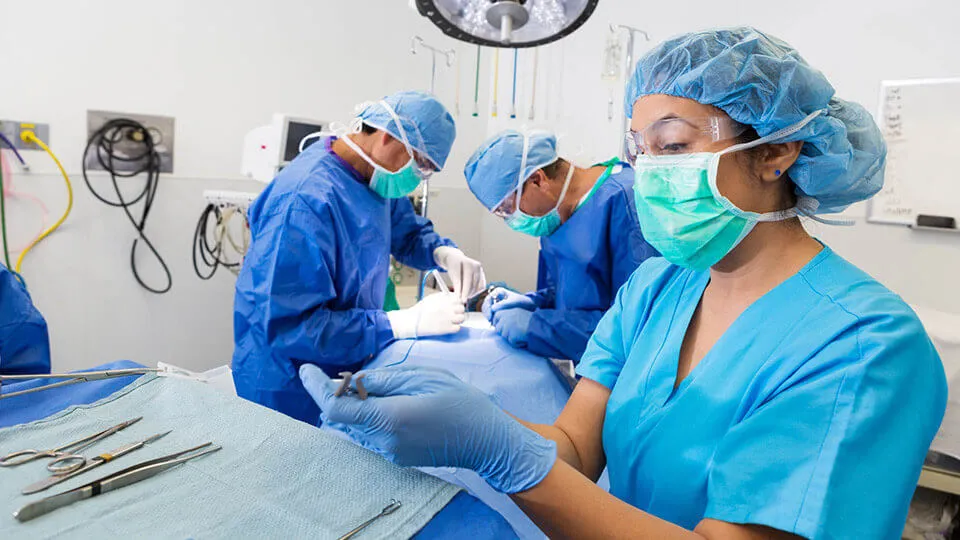Mastering the Tools of the Trade: Essential Skills for Surgical Technologists
Introduction to Surgical Tech Certification Programs
The healthcare industry offers a multitude of rewarding career paths, and becoming a surgical technologist is one of the most fulfilling options. As a surgical technologist, you’ll play a crucial role in the operating room, assisting surgeons and ensuring that surgical procedures run smoothly. To embark on this career, you need to complete a surgical tech certification program. This comprehensive guide will walk you through everything you need to know about these programs, from choosing the right one to understanding the certification process.
What is a Surgical Technologist?
A surgical technologist, also known as a surgical technician or operating room technician, is an allied health professional who works alongside surgeons, anesthesiologists, and nurses in the operating room. Their primary responsibilities include:
Preparing the operating room: This involves sterilizing instruments, setting up equipment, and ensuring that all necessary supplies are available.
Assisting during surgery: Surgical technologists pass instruments to surgeons, hold retractors, and may help with suturing.
Post-operative care: They also assist in cleaning and preparing the operating room for the next surgery.
Importance of Certification
Obtaining certification is a critical step for anyone aspiring to become a surgical technologist. Certification demonstrates that you have met the educational and professional standards required to perform effectively in the role. It is also often a requirement for employment in many healthcare facilities.
Choosing the Right Surgical Tech Certification Program
When selecting a surgical tech certification program, several factors should be considered to ensure you receive the best education and training possible.
Accreditation
Ensure the program is accredited by a recognized accrediting body, such as the Commission on Accreditation of Allied Health Education Programs (CAAHEP) or the Accrediting Bureau of Health Education Schools (ABHES). Accreditation guarantees that the program meets the high standards necessary for quality education and training.
Curriculum
A robust curriculum is essential for a comprehensive education. Look for programs that cover key areas such as:
Anatomy and physiology
Medical terminology
Surgical procedures
Aseptic techniques
Patient care and safety
Clinical Experience
Hands-on experience is crucial for developing the practical skills needed in the operating room. Choose a program that offers extensive clinical rotations in diverse surgical settings, allowing you to apply what you’ve learned in real-world scenarios.
Program Length and Format
Surgical tech programs typically range from 9 months to 2 years, depending on whether you pursue a certificate, diploma, or associate degree. Consider your schedule and learning preferences when choosing between full-time, part-time, online, or in-person formats.
The Certification Process
Once you’ve completed an accredited surgical tech program, the next step is to obtain certification. The two main certifying bodies are:
National Board of Surgical Technology and Surgical Assisting (NBSTSA)
The NBSTSA offers the Certified Surgical Technologist (CST) credential. To earn this certification, you must pass the CST exam, which tests your knowledge and skills in surgical technology.
National Center for Competency Testing (NCCT)
The NCCT offers the Tech in Surgery – Certified (TS-C) credential. Similar to the CST, this certification requires passing an exam that assesses your proficiency in surgical technology.
Exam Preparation
To prepare for these certification exams, consider the following strategies:
Review course materials: Go over your program’s textbooks, notes, and any other study resources provided.
Practice exams: Take practice tests to familiarize yourself with the exam format and identify areas where you need improvement.
Study groups: Join study groups to benefit from collaborative learning and support.
Maintaining Certification
Certification is not a one-time achievement; it requires ongoing maintenance to ensure you stay current with advancements in the field. Both the CST and TS-C certifications require continuing education and periodic recertification.
Continuing Education
Continuing education (CE) is essential for staying up-to-date with the latest surgical techniques, technologies, and industry standards. Many professional surgical tech certification programs organizations, such as the Association of Surgical Technologists (AST), offer CE opportunities through workshops, conferences, and online courses.
Recertification
The CST certification requires renewal every four years, either by earning CE credits or passing a recertification exam. The TS-C certification requires renewal every five years, also through CE credits or reexamination.
Career Opportunities for Certified Surgical Technologists
With a certification in surgical technology, you can pursue various career paths within the healthcare industry. Some potential job titles include:
Operating Room Surgical Technologist
Scrub Tech
Surgical Assistant
Sterile Processing Technician
Work Environments
Certified surgical technologists can work in a variety of settings, including:
Hospitals: The majority of surgical technologists work in hospital operating rooms, where they assist with a wide range of surgeries.
Outpatient Surgery Centers: These facilities offer elective procedures that don’t require overnight hospital stays.
Physicians’ Offices: Some surgical technologists work in offices that perform minor surgical procedures.
Traveling Surgical Technologists: For those who enjoy travel, some agencies offer temporary assignments in different locations.
Specializations
As a certified surgical technologist, you may also choose to specialize in specific types of surgery, such as:
Cardiovascular Surgery
Neurosurgery
Orthopedic Surgery
Plastic Surgery
Specializing can lead to higher pay and increased job opportunities.
The Future of Surgical Technology
The demand for surgical technologists is expected to grow significantly in the coming years. Advances in medical technology, an aging population, and an increase in surgical procedures contribute to this trend. As a result, the job outlook for certified surgical technologists is promising, with numerous opportunities for career advancement and specialization.
Conclusion
Embarking on a career as a surgical technologist is a rewarding decision that offers stability, growth, and the chance to make a significant impact on patient care. By choosing an accredited surgical tech certification program and obtaining the necessary credentials, you can ensure a successful and fulfilling career in this vital field.
